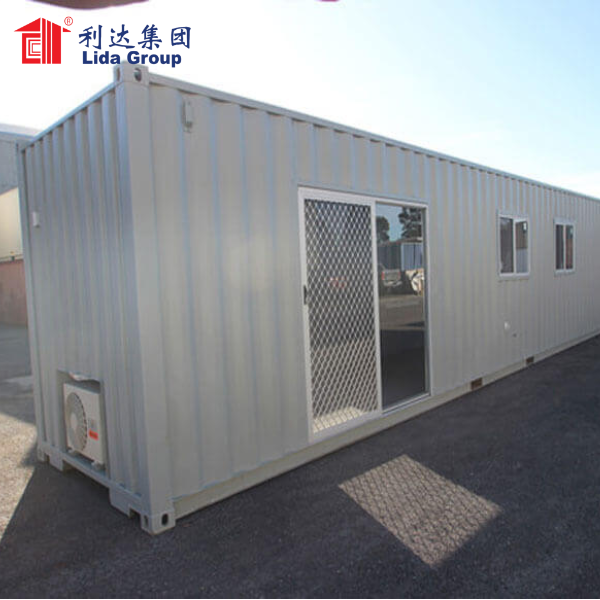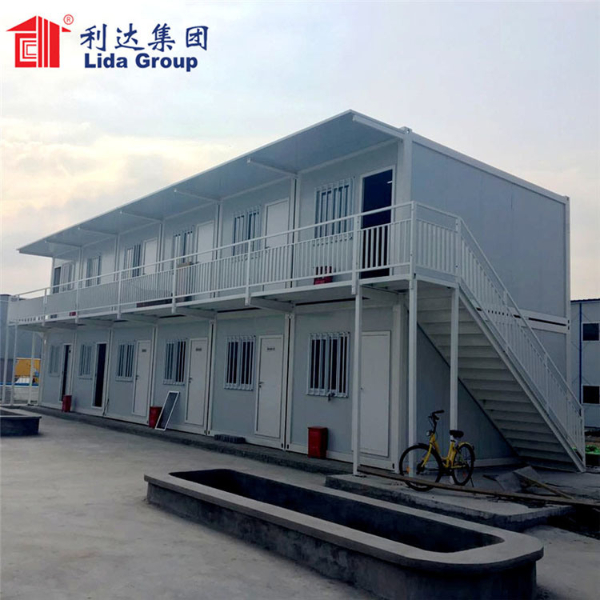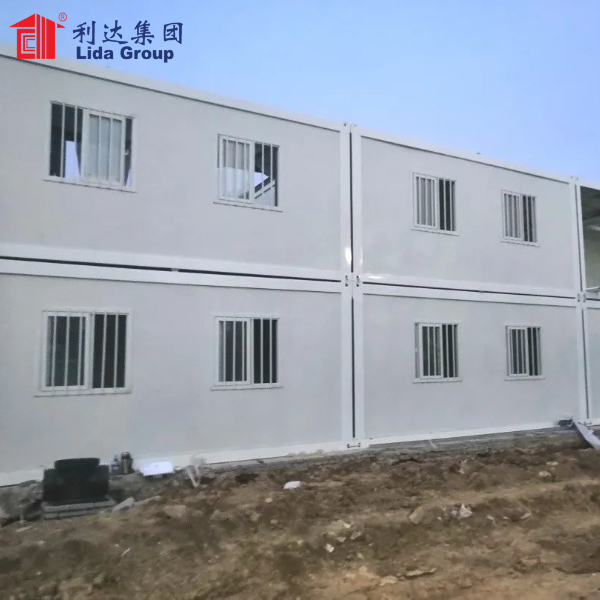Introduction:
Sustainable living has become an increasingly important goal as we strive to protect our environment and create a better future for generations to come. In the realm of housing, Lida Group, a prominent construction company, has taken a pioneering approach by introducing eco-friendly container houses. In this article, we will explore Lida Group’s commitment to sustainable living, the ecological benefits of their container houses, and the potential they hold for transforming the housing industry towards a greener and more sustainable future.
- The Importance of Sustainable Living:
1.1 Environmental Challenges:
The world faces numerous environmental challenges, including climate change, resource depletion, and pollution. Unsustainable practices in various sectors, including housing, contribute significantly to these issues. Therefore, adopting sustainable living practices is crucial to mitigate the negative impacts on the environment and foster a more sustainable future.
1.2 Housing and Sustainability:
Housing plays a significant role in sustainable living. Traditional construction methods often involve resource-intensive processes, high energy consumption, and substantial waste generation. By embracing sustainable approaches to housing, we can minimize the ecological footprint of the built environment and promote a more harmonious coexistence with nature.
- Lida Group’s Commitment to Sustainable Living:
2.1 A Vision for Sustainability:
Lida Group has made sustainability a core principle in their construction practices. They recognize the need to create homes that are not only affordable and functional but also environmentally responsible. By incorporating sustainable design and construction methods into their container houses, Lida Group aims to lead the way in promoting sustainable living.
2.2 Green Building Certifications:
Lida Group actively pursues green building certifications for their container houses. These certifications, such as LEED (Leadership in Energy and Environmental Design) or BREEAM (Building Research Establishment Environmental Assessment Method), provide independent verification of a building’s sustainability performance. By seeking these certifications, Lida Group demonstrates their commitment to meeting rigorous sustainability standards.
2.3 Collaborations and Research:
To further their sustainability goals, Lida Group collaborates with industry experts, architects, and researchers to explore innovative solutions and stay at the forefront of sustainable construction practices. By fostering partnerships and engaging in ongoing research and development, they continuously improve their container house designs to maximize sustainability.
- The Ecological Benefits of Lida Group’s Container Houses:
3.1 Recycling and Waste Reduction:
One of the key ecological benefits of Lida Group’s container houses is the repurposing of shipping containers. By giving a second life to these containers, the construction industry reduces the demand for new materials and decreases waste generation. This recycling process significantly reduces the carbon footprint associated with traditional construction methods.
3.2 Energy Efficiency:
Lida Group’s container houses incorporate energy-efficient features that reduce energy consumption and lower greenhouse gas emissions. These features include high-quality insulation, efficient heating and cooling systems, and the integration of renewable energy sources such as solar panels. By optimizing energy efficiency, container houses reduce the overall environmental impact associated with housing.
3.3 Water Conservation:
Water scarcity is a growing concern in many regions. Lida Group addresses this issue by incorporating water conservation measures in their container house designs. These measures can include rainwater harvesting systems, low-flow fixtures, and water-efficient appliances. By reducing water consumption, container houses contribute to the preservation of this valuable resource.
3.4 Sustainable Materials and Finishes:
Lida Group prioritizes the use of sustainable materials and finishes in their container houses. These materials include recycled or responsibly sourced wood, low-VOC (volatile organic compound) paints, and eco-friendly flooring options. By choosing sustainable materials, folding container houses minimize the release of harmful substances into the environment and promote healthier indoor air quality.
- Advancing Sustainable Living through Container Houses:
4.1 Demonstrating Sustainability in Practice:
Lida Group’s container houses serve as tangible examples of sustainable living. By showcasing the feasibility and benefits of eco-friendly housing, they inspire individuals, communities, and other industry players to adopt similar practices. Container houses become not only homes but also educational tools that raise awareness about sustainable living principles.
4.2 Promoting Sustainable Communities:
Container houses have the potential to foster sustainable communities. Lida Group’s designs incorporate communal spaces, shared amenities, and green areas, encouraging social interaction, community engagement, and a sense of belonging. These elements promote sustainable lifestyles, resource sharing, and the development of resilient and cohesive communities.
4.3 Scalability and Replicability:
Container houses offer scalability and replicability, making sustainable living accessible to a broader population. The modular nature of container construction allows for efficient mass production, reducing costs and increasing affordability. This scalability enables the widespread adoption of sustainable housing solutions in various contexts, from individual residences to large-scale housing projects.
- The Future of Sustainable Container Houses:
5.1 Technological Innovations:
Lida Group continues to explore technological advancements to enhance the sustainability of their container houses. They invest in research and development to improve insulation, optimize energy efficiency, and integrate smart home technologies. Innovations such as advanced building materials,automated energy management systems, and off-grid capabilities hold the potential to further revolutionize sustainable container house construction.
5.2 Policy and Regulatory Support:
To accelerate the adoption of sustainable container houses and sustainable living practices, supportive policies and regulations are essential. Governments and policymakers can incentivize sustainable construction, provide tax benefits, and establish building codes that prioritize energy efficiency and environmental sustainability. Such support will create an enabling environment for the widespread implementation of container houses and other sustainable housing solutions.
5.3 Collaborative Efforts:
The transition to sustainable living requires collaborative efforts from various stakeholders, including governments, businesses, communities, and individuals. Lida Group actively engages in partnerships and collaborations with these stakeholders to promote sustainable housing and drive industry-wide change. By working together, we can overcome barriers and create a more sustainable future.
Conclusion:
Lida Group‘s eco-friendly container houses exemplify the possibilities of sustainable living in the housing industry. Through their commitment to sustainability, they offer a solution that addresses environmental challenges while providing comfortable and affordable homes. The ecological benefits of container houses, such as recycling and waste reduction, energy efficiency, water conservation, and the use of sustainable materials, contribute to a greener and more sustainable future. With their scalability, replicability, and potential for fostering sustainable communities, container houses have the power to transform the way we live and build. Through continued innovation, collaboration, and policy support, we can advance sustainable living and create a better world for future generations.
Post time: Sep-07-2023



